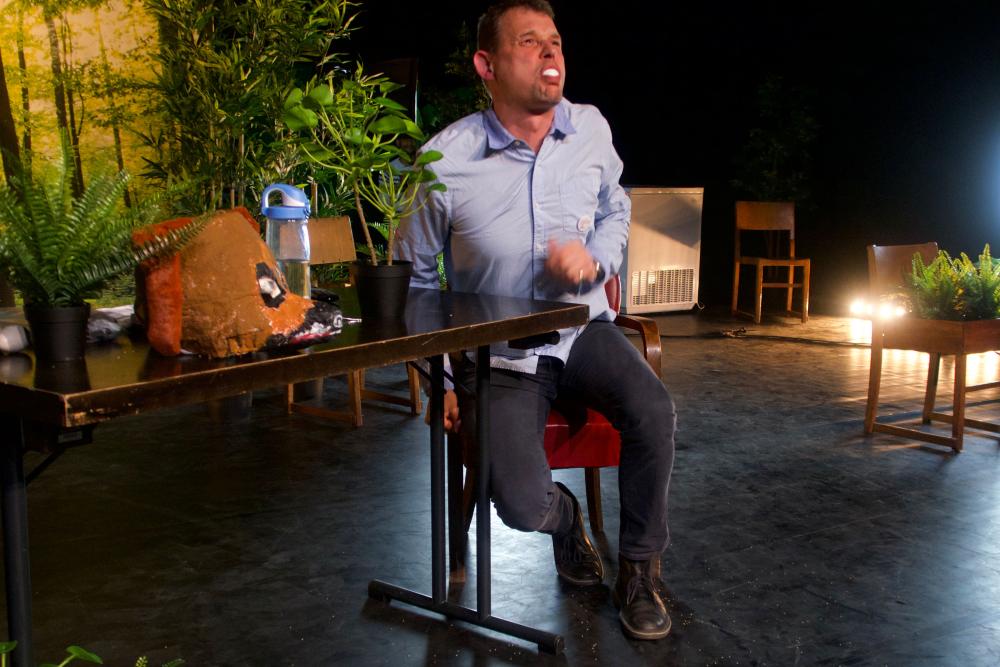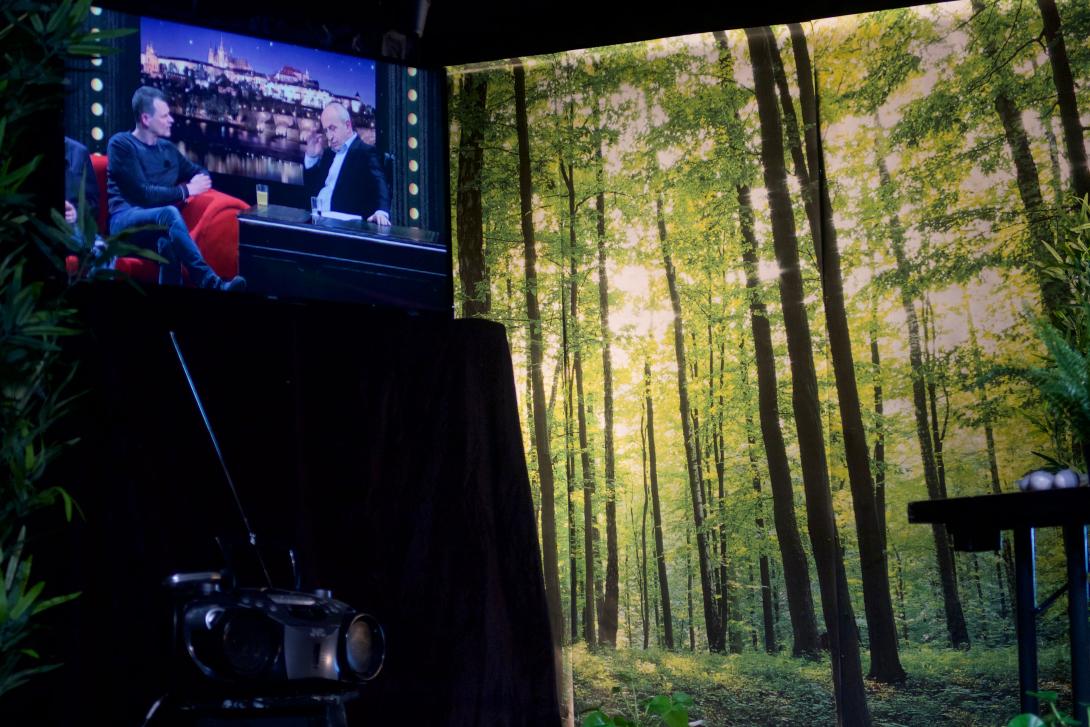It will be real & staged
a conversation with Lukas Alberg
Lukas Alberg worked as a safety coordinator for Blipco from 2005 to 2019. Following a series of momentous events, Lukas was placed onto a different track. He has since had a profound influence on policymakers regarding mobility, climate justice and migration issues, and has amassed a widespread following. As he prepares to present himself in various theatres across Europe, Lukas joined us to discuss the roots of his movement and his position as The Decoy.
Q: Hello Lukas, you are the frontman of a movement that you will present in Kaaitheater. Can you tell a bit more about what you stand for?
A: The “movement” is a possibility. And that is the possibility for us to come together and voice our true needs whilst being respected and heard. I want to present an opportunity to move towards true democracy, towards a system that cares deeply for everyone within it.
Q: So the system we’ve known for so long is, according to you, not a true democracy?
A: No, absolutely not. It’s a diluted form of the idea of democracy. Do we all have equal rights? No. Can we truly change things through policies or elections? Not really. Minority groups are fighting to be heard, and rightfully so. However, the majority of our leaders are looking down from their ivory towers onto a battlefield where those groups battle each other with judgement and hostility. I think we should be more empathetic towards each other and less understanding of the systems inflicted upon us. We are being used as scarecrows! Scarecrows used to divert attention from what needs to be addressed. I want everyone to find their own voice and express it. In this phase, I am trying to be as many voices as I can. However, I am but a humble mouthpiece, leaving the door ajar and waiting for it to be pushed open by the masses.
Q: You said you want to move towards a ‘true democracy’. I can’t help but wonder if democracy has already failed and if it’s time to admit it simply doesn’t work. Shouldn’t we be on the lookout for new ways of organising societies?
A: I believe in the idea of radicalising the existing democracy instead of radicalising all of our wounded minorities. We need to develop our democracy, not our identities. Identity is just the dildo of emancipation politics - lonely and not very satisfying. We cannot just erase centuries of history, but we can try to learn from it and act differently. If we were to invent new systems, we’d experience growing pains and learning curves all over again. We are not running a company, we are trying to figure out how to share a planet, a home for all living beings. I deeply engage with my cactus, my vegan postman, my Muslim neighbour and my sexist, too expensive, white male bin man.
Q: Why have you chosen the theatre as the location for your presentation? Aren’t there other institutions that are more fitting for your message?
A: Apparently, the theatre has a beautiful history? Reality on stage is always authentic and disarming. One could say it is a sort of delivery room - we are but newborns when we exit the space. This is true for the spectators as well as for my collaborators. I can’t imagine a better space to unveil some of the most persistent and untold lies. That being said, I do live-stream every presentation I give so it reaches beyond the walls of the theatre. I don’t want to deny modern culture. Today, it is very natural to connect to a story through a virtual experience. I wouldn’t want to exclude those who feel more comfortable watching from their own homes, in their pyjamas, on a screen.
Q: You openly distance yourself from populism and the leaders that come with it. Yet your humble background appeals to a part of society that is sensitive to the narratives of populism and you share your ideology through the format of a one-man show. Don’t you consider that to be contradictory? Or a slippery slope at least?
A: In the presentation, I share my story with the audience so they can understand where I come from and who I am. It would be hypocritical to mask it. Populist leaders originate from existing parties with a not-so-hidden agenda that falls completely out of line with the needs and interests of the voters. Their policies made us feel more abandoned than ever. I defend openness. I trouble myself with peeling the onion layer by layer. It moves me to tears. You can say I had a campaign but it was the result of things I had already accomplished, not empty promises. I gained trust through that. It made me accomplish more. It makes sense that a lot of people feel at home with my movement.
I was doubtful in the beginning and wrestled quite a bit with the idea of becoming a public figure. Honestly, if I had had total control over my life, I’m not sure this is the path I would have chosen for myself. But I have no regrets. Important steps have been made and I mean when I say that, ultimately, none of it is about me. It is also a conscious choice that I am not alone on stage. I want everyone that travels and works with me there. ‘No man is an island’. By the way, this will be the tagline of the movie they are making about me.
Q: Do you see yourself as the next important political figure?
A: What is a “political figure”?. To take a position, articulate it and then express that openly: that’s politics. I used to think differently... I wasn’t exactly interested in politics before all of this happened. But everyone has something to say. We just have to discuss our differences and discrepancies with trust and good faith. At the end of the day, we all share this new common ground: this radicalised, expanded democracy. To answer your question more precisely, I don’t necessarily think I’m the next important “political figure”. But I do think we’ve reached the next important political moment and that I’m somehow part of it. And so are you.
An interview with Lukas Alberg, by Elisa Demarré and Francesca Pinder.

